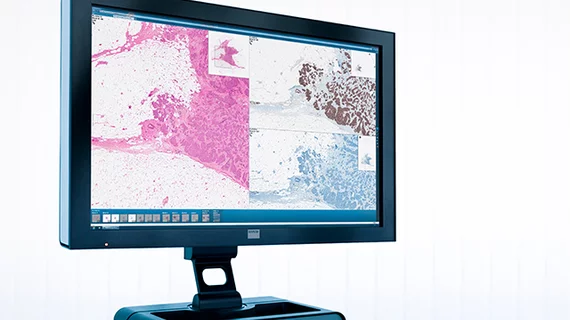Sectra adds support for all high-volume digital pathology scanners in bid to improve cancer care
Medical imaging IT giant Sectra announced on Monday that its digital pathology solution now supports all high-volume scanners, a move that’s expected to improve cancer diagnoses and care.
Digital pathology is still an emerging technology with many vendors producing images via proprietary file formats instead of vendor-neutral configurations.
By adding support for two additional file formats, the Linköping, Sweden-based company said providers using its pathology module now have the freedom to choose the scanner and imaging solution most suitable for their practice.
“Imaging solutions are a critical component of healthcare IT infrastructure,” Elin Kindberg, global product manager of pathology at Sectra, said in a statement. “However, without deep integration in surrounding IT systems and support for a wide range of file formats and standards, the true clinical gains will not be realized.
That is why vendor neutrality is so important, and something we strive toward across all our products,” Kindberg added. “Within pathology, we have now taken an important step by pushing vendor neutrality even further.”
Back in March, Sectra received U.S. Food and Drug Administration approval for its digital pathology module. And in June, the Mayo Clinic announced it would begin implementing the pathology solution across its entire enterprise, which includes its Florida and Arizona locations.

